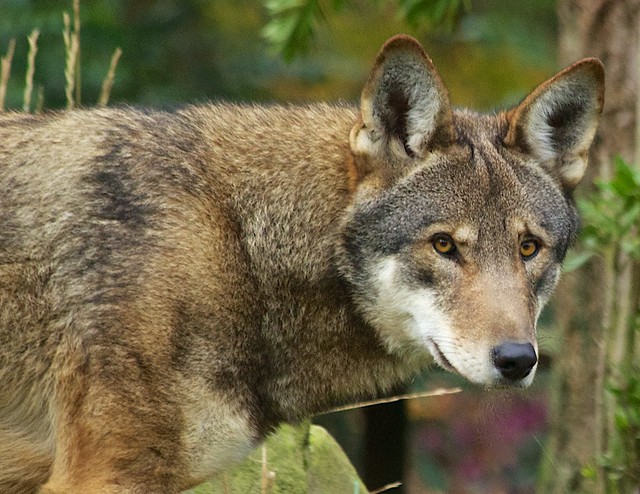Press Release
Expects a decision regarding the future of the Program in early 2015
November 20, 2014
Contacts:Tom MacKenzie, USFWS
404-679-7291
Tom_MacKenzie@fws.gov
The U.S. Fish and Wildlife Service today released a 171-page, peer-reviewed evaluation of its Red Wolf Recovery Program’s non-essential, experimental population in five Eastern North Carolina counties.
Brief statements from Steve Williams, president of The Wildlife Management Institute; Leopoldo Miranda, assistant regional director for ecological services in the Service’s Southeast Region; and Gordon Myers, executive director of the North Carolina Wildlife Resources Commission, are included below.
The evaluation is one action among several that are part of a broad agreement between the Service and the North Carolina Wildlife Resources Commission put in place in late 2013. Both agencies recognized that some steps were needed to improve management of the non-essential, experimental population in Eastern North Carolina, which was established under Section 10(j) of the Endangered Species Act and is a component of the overall recovery effort for the red wolf.
As the Service indicated in August when it announced a review would be conducted this fall, the evaluation will be used with other information to help the agency address deficiencies and determine the program’s future in Eastern North Carolina.
A broader announcement on that overall decision is expected in early 2015.
The evaluation, the agreement with North Carolina, and the Service documents used for the evaluation are currently available at fws.gov/redwolf/evaluation.html. A recording of today’s press conference also will be posted there.
Steve Williams
Wildlife Management Institute
“Agencies interested in improving their conservation programs often reach out to independent reviewers to evaluate the success of their programs,” said Williams, the report’s chief author. “In this case, the Fish and Wildlife Service asked the Institute to conduct just such a review. The findings and conclusions contained in our report cover a wide range of issues grouped under the categories of science, program management, and human dimensions. The Fish and Wildlife Service has a clear understanding of the science involved in the restoration of the most endangered canid in North America. Its introduction of captive red wolves into the wild has proven successful.
“Our review looked at 28 years of the recovery program. As with all programs, hindsight is 20/20. WMI concluded that the recovery program management could have been improved if a more interdisciplinary approach was used to better respond to public concerns and information needs. We also concluded that the rules established for the recovery program were not always followed. However, we believe that Fish and Wildlife staff acted in the best interest of the red wolves and the public with whom they were working.
“Finally,” Williams concluded, “the Fish and Wildlife Service must do a better job of understanding the human dimensions of this program at the local level. The recovery of red wolves is a complicated and difficult process. We hope our conclusions will assist the Fish and Wildlife Service in its deliberations about the future of the program in North Carolina.”
Leopoldo Miranda
U.S. Fish and Wildlife Service
Southeast Region
“I want to thank WMI and the independent peer reviewers for their work to complete this program evaluation within our time-frame,” Miranda said.
“The evaluation is critical of the Service’s management of the recovery program non-essential, experimental population in North Carolina,” Miranda added. “We’ve begun a detailed review of the evaluation and take its critical analysis seriously. The Institute covered many topics to meet our request and we will take some time to carefully review it. Even as we move forward with that review, I also want to say that earlier this year we recognized an immediate need for corrective action in an area related to the introduction of red wolves on private lands as part of this population, which the report affirmed. At this time, we are stopping the practice of relocating red wolves to private lands. If, in the future the Service wants to relocate red wolves on private property, it will only do so if it has written agreements in place.
“We have a lot of work in front of us and I also want to note here that we appreciate all of the public engagement this process has generated,” Miranda said.
Gordon Myers
North Carolina Wildlife Resources Commission
“We appreciate the focused and deliberative action the Service is directing to evaluate its Red Wolf Program,” Myers said. “This report, which stems from collaboration between the Service and the Commission, is a high priority action item that will inform future decisions about that program.”
source



No comments:
Post a Comment